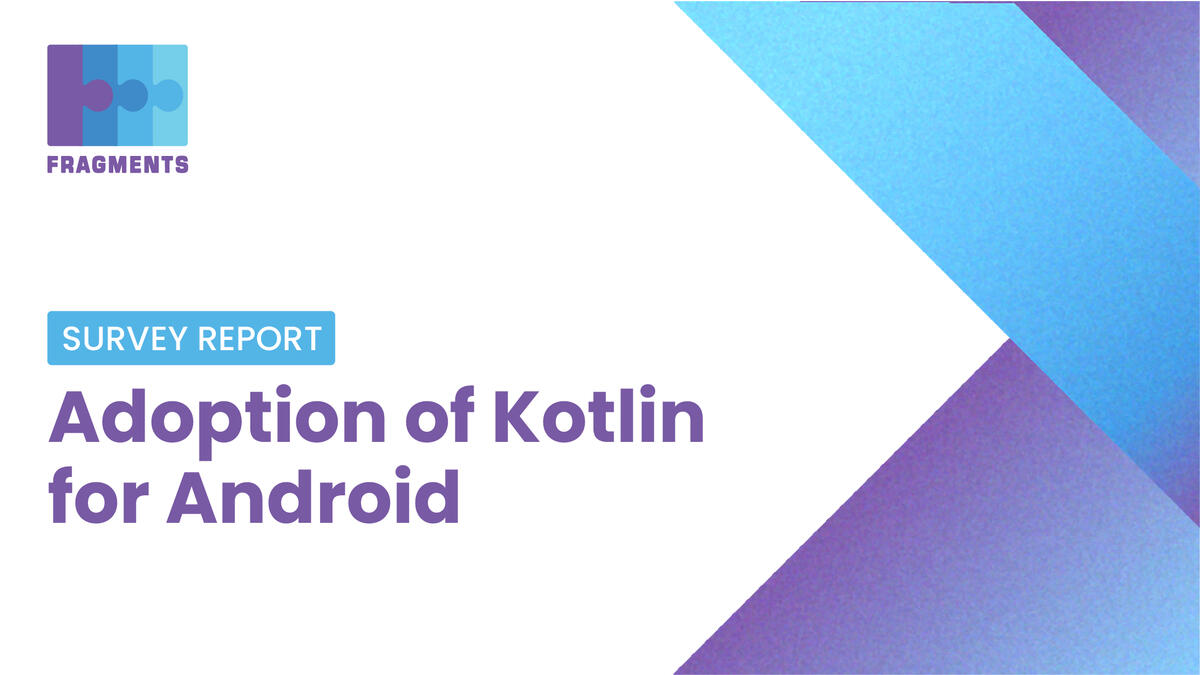
Kotlin will displace Java in the Android ecosystem.
Survey report on the adoption of Kotlin for Android.
Madhusudhan Sambojhu
@madz314
Submitted Sep 9, 2021
The survey was conducted online using Survey Monkey. Respondents answered descriptive and multiple choice questions.
We targeted individual developers and app development teams from startups and enterprises to respond to the survey. Respondents from SaaS, Fintech, gaming, mobility, e-governance and IT services domains participated in the survey.
As mentioned in the executive summary, respondents were primarily drawn from among Android engineers and teams. 63 respondents were Android developers. Only two respondents mentioned comfort working with iOS Operating System (OS). Future research needs to examine Kotlin’s adoption and use in the iOS ecosystem.
The survey refrained from asking for personal information to preserve the privacy of respondents. The survey questionnaire instead focussed on the challenges respondents’ faced in using Kotlin, and their organization’s experience with Kotlin adoption. (See Appendix I for the survey questionnaire.)
90 percent of respondents said their companies had an app. Majority of these apps were developed using Java and Kotlin, or with a combination of Kotlin and Swift. JavaScript, React Native, Flutter and Typescript were also used in various combinations to build native, iOS, PWA and Android apps.
A total of 65 respondents participated in this survey. Respondents’ organizations either use Kotlin or had considered Kotlin as a choice of language in developing the company’s app.
This sample is a good starting point for further research on Kotlin’s growth and adoption in India for Android and in other domains.
Future research can include more demographic variables such as gender, geographical diversity and respondents from Tier II and Tier III Indian cities so that a larger, diverse sample size can help us understand trends better. The current research is an exploration of the upskilling requirements that the industry faces with the growth of Kotlin for Android.
{{ gettext('Login to leave a comment') }}
{{ gettext('Post a comment…') }}{{ errorMsg }}
{{ gettext('No comments posted yet') }}